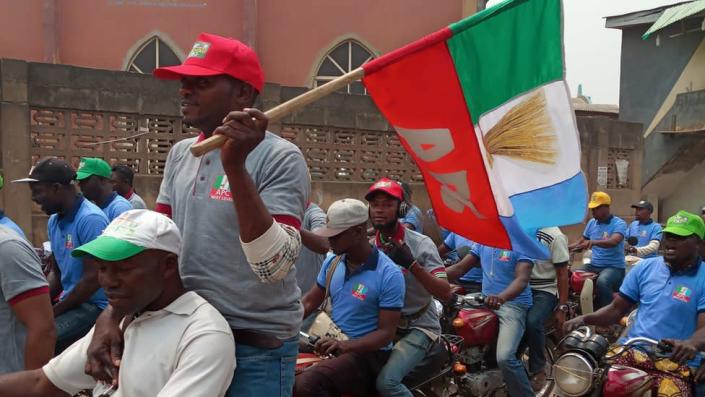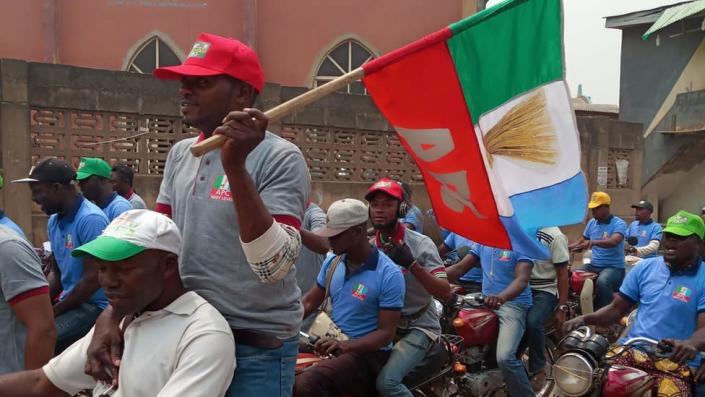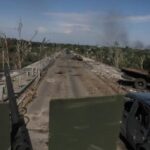
Members of Nigeria’s ruling All Progressives Congress (APC) are electing a presidential candidate in the capital, Abuja.
Whoever emerges from the 23 aspirants will lead the party into next February’s election against Atiku Abubakar of the main opposition party.
President Muhammadu Buhari is not allowed to stand after serving two four-year terms in office.
More than 2,000 delegates are expected to vote.
The convention started on Monday, a day after gunmen killed worshippers in Ondo state, in the south-west.
The attack at the St Francis Catholic church in the town of Owo highlights the worsening insecurity under the APC, which Nigeria’s next president will have to confront.
That, along with high unemployment and rising inflation are expected to be the main election issues.
Vice-President Yemi Osinbajo, Senate President Ahmed Lawan, former Lagos governor Bola Tinubu and Rotimi Amaechi, until recently a transport minister, are the favourites to be chosen as the APC candidate.
The APC emerged as a coalition of major political parties from northern and western Nigeria in 2013 and managed to seize power from the Peoples Democratic Party (PDP) in 2015, when President Buhari scored the first of his two election victories.
The party retained power four years later and has since consolidated its reach across Nigeria, winning several local parliamentary seats and taking onboard defecting governors in southern Nigeria.
Some senior party members, including Mr Buhari, have been pushing for a consensus candidate to avoid a vote at the convention that might split the party.
The president told the party’s governors last week that he expected “reciprocity” from them at the convention in choosing his successor, which many have interpreted as his desire to impose a candidate on the party.
Powerful northern APC governors last week said they supported a southern candidate to succeed Mr Buhari, who is a northerner, in continuation of a controversial agreement to alternate power between northern and southern Nigeria.




